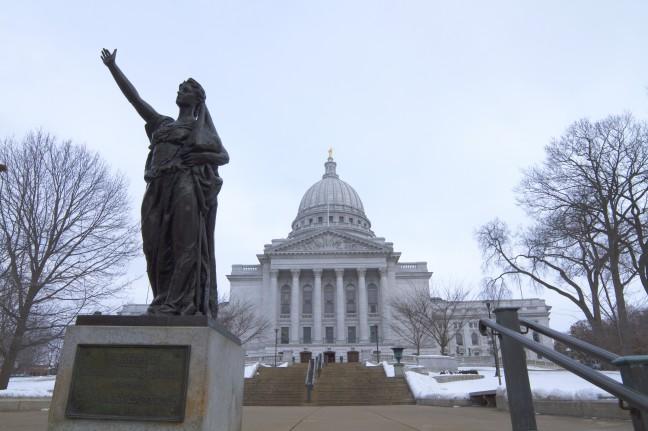Gov. Evers signed a COVID-19 response bill into law this morning after the Wisconsin Assembly passed it Tuesday with a bipartisan majority.
During the state’s first virtual session in history, state legislators came together across the aisle to pass a COVID-19 response bill following weeks of negotiations between Republican leaders and Gov. Tony Evers, according to AP news. The bill passed with a bipartisan majority of 97-2 as senators voted in person or via telecommunication, according to reporting from The Cap Times.
Following the bill’s passage by the Senate this morning, Evers sent a letter to Republican Assembly Speaker Robin Vos and Senate President Roger Roth calling for the bill to get to his desk as soon as possible. Evers praised the bipartisan effort to pass the legislation in the letter, though he wrote the bill came to his desk lacking some of the provisions he hoped it would have.
“I appreciate this legislation received bipartisan support, and this bill is a step in the right direction, but I must reiterate that even in passing this legislation, there remains more work to be done,” Evers wrote in the letter.
The legislation contains 55 different provisions, and its main function serves to pave the way for the $2.3 billion of federal funding under the CARES Act that will soon be coming into the state, according to a press release from Evers’ administration this morning.
University of Wisconsin Economics and Population Health Sciences Professor Barbara Wolfe wrote in an email to The Badger Herald the legislation removes the restrictive regulations that would have prevented the state from receiving the federal funding, which includes higher Medicaid payments and unemployment benefits.
Another key aspect of the bill eliminates the one week waiting period for unemployment insurance, according to Evers’ press release this morning. The bill will also loosen the rules on work share, which Wolfe wrote will allow individuals to work partial hours and get paid for those by their employer while still getting a percentage of an unemployment claim based on how many hours they work.
Additionally, the bill allocates $75 million to the Legislature’s budget committee to support the state’s COVID-19 response, Wolfe said. The governor controls the rest of the funds in the bill, but Wolfe said those funds have direct provisions, meaning there are constraints on allocation decisions.
But, Evers said in the press release that the bill does not provide hazard pay or workers compensation for all essential workers in the state. Evers also criticized the bill’s lack of support for small businesses and farmers.
“It does not create programs or funds to provide added compensation to first responders and others taking on the risky jobs dealing with COVID-19,” Wolfe explained. “It does not deal with particularly hard-hit businesses from child care to small businesses, or losses to higher education institutions.”
Evers wrote that his administration will continue to push for more relief as the pandemic persists.
Evers said though this bill helps, the state will face more challenges in the coming weeks, and it’s up to both Wisconsinites and the legislature to help.
“Our state is facing significant challenges as we respond to and prevent the spread of COVID-19,” Evers said in the press release. “People across our state are hurting. We have asked Wisconsinites to make sacrifices so we can keep them safe, and the Legislature needs to do their part.”














